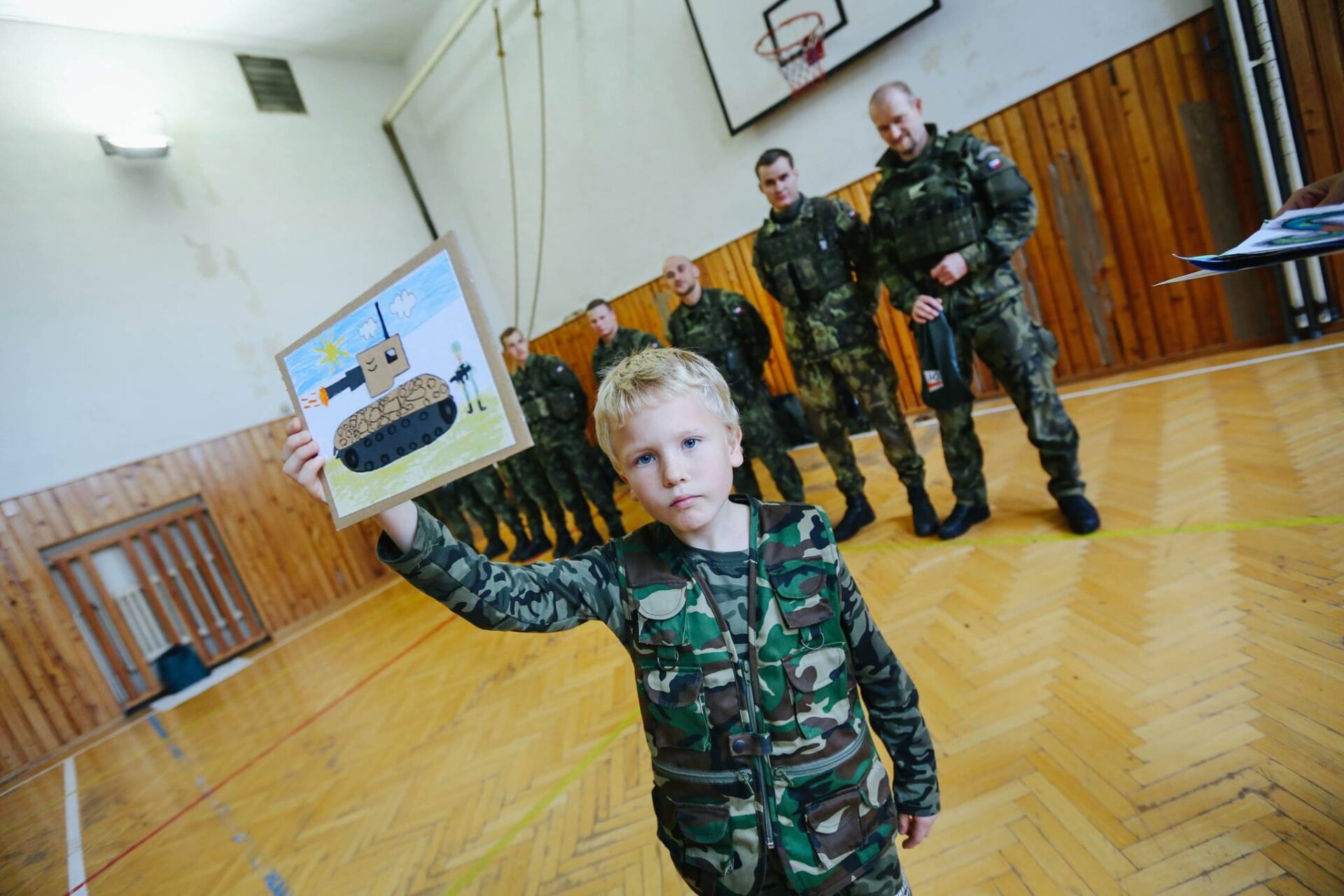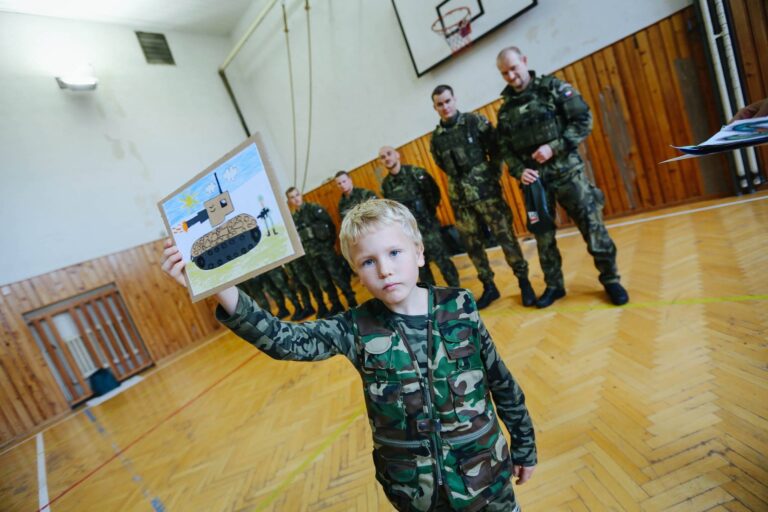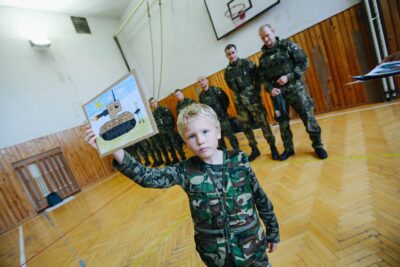The Czech ministry of interior publishes a report about extremist groups four times a year. With regard to militia activities, the ministry claims that they recently decreased. As main reasons, the ministry indicates “personal animosity, power disputes and disagreement about the direction of the organization. Several recruits were suspected of being part of a militia for business reasons, rather than patriotism and state defence.”
The disunity of Czech militias turned up as a real problem. The ministry monitors two most significant militia groups – Českoslovenští vojáci v záloze za mír (Czechoslovak Armed Reserves for Peace – VSquare) and Národní domobrana (National Militia – VSquare).
Their activity does not differ from the other groups in Visegrad countries. According to the ministry report, both militia groups have direct links to separatist groups in Ukraine, there is a connection and links to members of political parties, some of the groups are only represented by pensioners. Often they are only virtual, and some members welcome Russian bikers form the Night Wolves on their journey from Moscow to Berlin.
However, the strength of Czech militia groups is not as significant as in other Central European countries. At the beginning of 2018, Národní domobrana split up because of internal disputes. Several members created a new militia – Zemská domobrana. It has only a few members, but since its formation it has followed the direction of Slovenskí Branci.
Zemská domobrana has changed its rhetoric and it is now trying to limit public speeches and strengthen patrol activities, the 2018 report says. The biggest change happened with respect to education activities for young people and children. They started to promote national defense education. “Some of the militia groups are based on xenophobia and racism, and they contradict the foreign policy of the Czech Republic. In this case, teaching of national defense education by such groups can be regarded as a significant security risk,” the ministry said in a report of August 2018.
Modern military marketing
The goal of the Czech ministry of defense is to have 30,000 soldiers in the Czech Army by 2026. The idea of becoming a soldier is less and less popular with young people, and until recently the ministry tried to attract young men by high pay, which still did not seem enough.
The ministry understood that it needed a different strategy. In 2012, a new bill on defense education in schools was passed. In practice, it meant that schools had to start teaching defense education to children, which caused many problems. The ministry of Defence created an organization called POKOS (Příprava občanů k obraně státu – VSquare translation: Preparation of Citizens to Defend the State). POKOS became the sole organization to implement the practical part of defense education, which is normally provided by the Czech Army.
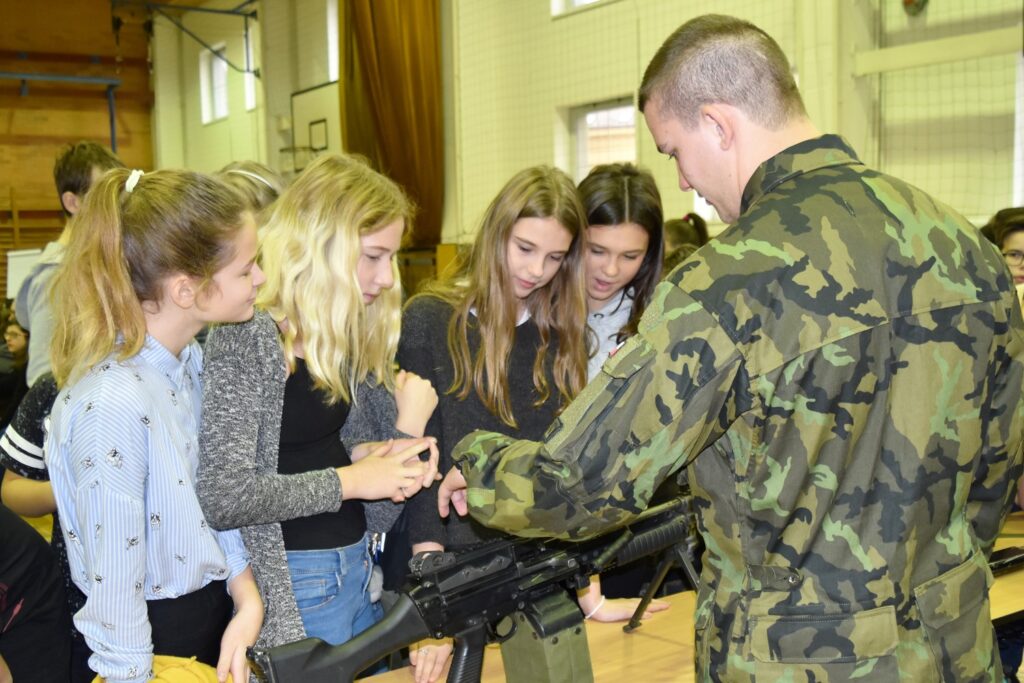
Czech Army soldier shows a gun to young girls, photo: POKOS
The work of POKOS has been criticized by NGOs dedicated to gun control issues. As the main problem, critics see that the ministry did not provide any alternative way of teaching defense education. Especially at the beginning, there were problems with explaining the controversial topics to young children. Children were naturally attracted to gun presentations, and the spreading of positive attitudes towards guns was highly criticized by Hanka Zoor Svačinková from NGO Nesehnutí: “I have seen a lecture by POKOS where the speakers were soldiers who made a presentation about the army. They gave their opinions for facts. They put guns into children’s hands. To me, it looks like a recruitment technique.”
When the bill on defense education in schools was passed in 2012, František Šulc was the chief advisor to the Czech minister of defense and POKOS presentations in schools seemed absolutely appropriate to him: “Guns are part of our society. I think it is better to show children guns under supervision. If we deny the existence of guns, they will not disappear.” Although he does see a lot of bureaucracy behind the project, he believes defense education can be very useful.
He also admits that the Czech Army is using school presentations as a recruitment technique: “Recruitment is one of the crucial abilities of an army. I think this is one way to do it, because if children have enough information, they can easily become soldiers. The labour market situation will be more difficult and the army needs to do marketing, just as other industries are doing.”
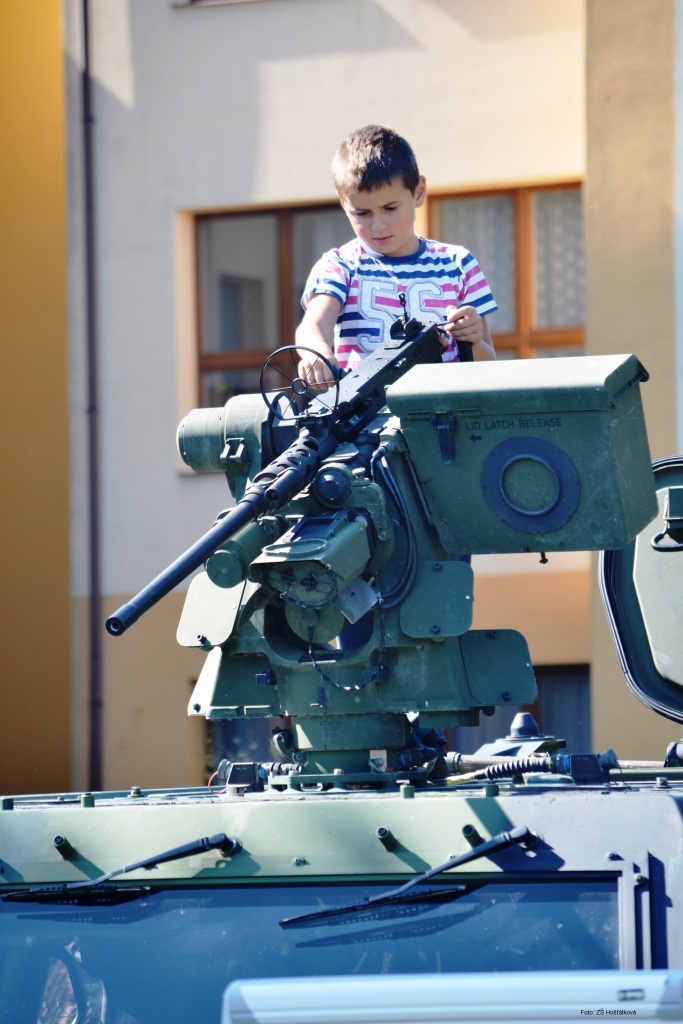
School child in a tank, photo: POKOS
VSquare met a soldier of the Czech Army who had been an interpreter for a few POKOS presentations. From his point of view, everything was according to the rules of the Czech Army, regarding gun handling.
“Every soldier knows that aiming at a person (even with an unloaded gun) is forbidden. All soldiers know this rule by heart. If children did it, it is a failure of the soldier who was next to the child. We (soldiers – VSquare note) all know it is not ethical. Of course, we showed the guns to children, but nothing could happen. We did not even have munitions with us,” explained the Czech Army soldier John (the name was changed because of security reasons – VSquare).
From John’s experience, children really like the presentations by POKOS and he was able to explain any aspect that might seem problematic or controversial for children. He mentioned he had spent a long time preparing himself on how to talk to children and also his superior and a teacher were present at his presentation.
“Children really liked our presentations. They got super excited. I think it is good for children and it cannot harm them to know eg. how to provide first aid. Moreover, they also know the army exists and actually does something.”
Country of violent individuals
John has worked as a soldier for six years and he has never felt he was forced to be a patriot. He admits that soldiers are patriots by nature, but he has never seen anything extreme: “I have not seen any extremist behavior in the army. I think the Czech Army is very professional and soldiers can separate personal life from their profession. I know people who have Czech nationalist tattoos of an eagle, but there are very few of them. Anyway, all of us need to go through very difficult psychological tests and if somebody is a little more aggressive, he would never manage to become a soldier.”
When our discussion switched to paramilitary groups, he was surprised: “I have not heard of such groups at all. They have not told us at all. I only know guys who play airsoft in the woods.”
František Šulc, former advisor to the ministry of defense, also agrees that there are few extreme deviants in the army. And if there are any, the army surely knows about them. He also mentioned personality screening and that he does not believe such an extremist could pass it.
“If you look at the history, it has never had a tradition here in the Czech Republic. It never became a mainstream that could change the mindset of the country. We can not deny that these people are in the army. But it is important that we keep them under control. It is hard to do more,” Mr. Šulc said.
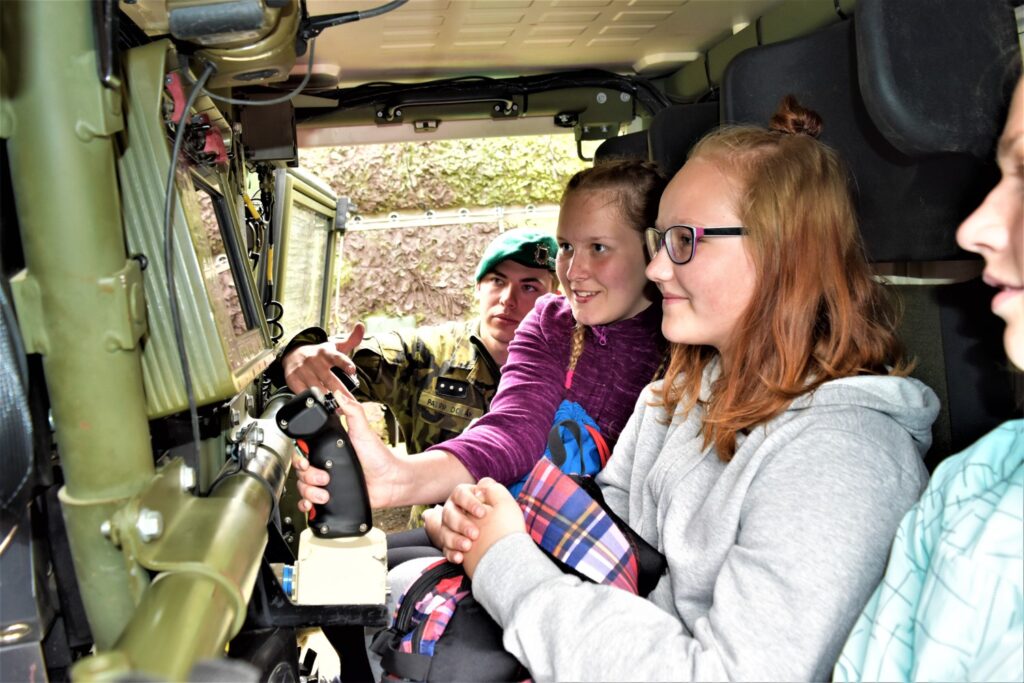
Girls in a tank, photo: POKOS
The absence of big and important paramilitary groups in the Czech Republic has several reasons, according to a Czech political expert Petr Kupka: “First, the police have enough capabilities to expose them quickly. Second, establishing such an organization is very risky today. In the past, the founders ended up in jail for similar attempts. Thirdly, the tradition of paramilitary organizations is at a different level in the Czech Republic than in Poland. Rather, I see a problem in demonstrations. The anti-migration crisis caused several demonstrations and there was no need for a militant organization starting them. There were politicians using their symbolic power, such as president Miloš Zeman or ethnic entrepreneurs, such as Tomio Okamura, using their economic sources to trigger anti-immigrant tendencies. However, they were predominantly non-violent.”
Although the Czech Republic has no similar paramilitary groups to Slovakia, there are a few politicians whose agenda is anti-migration or racist. President Miloš Zeman is well-known by his quotes, just as a Czech-Japanese far-right politician Tomio Okamura, the leader of the party Freedom and Direct Democracy. Recent polls say Okamura has an electorate of about 4%, but his support changes a lot with public moods. Although he is trying to sell “xenophobia” as his main agenda, he is not able to reach the bigger public. The explanation could be simpler than it seems.
“I believe that organized political violence would not be supported in the Czech Republic. When we look at the aesthetics of paramilitarism, which includes a certain degree of exclusivity, the overuse of the symbols of unity and marching in uniforms, I do not think that such an organization has any significant support in the Czech Republic, as there is in Slovakia,” Petr Kupka explains the reason why paramilitary groups are not so important in the Czech Republic.
This article is a part of a research supported by the IJ4EU grant. The IJ4EU fund is not responsible for the content and any use made out of it

Eva is a journalist working for investigace.cz based in Prague. Investigace.cz is NGO covering organized crime topics and the only Czech partner of OCCRP. She works on projects connected to Slovakia.

